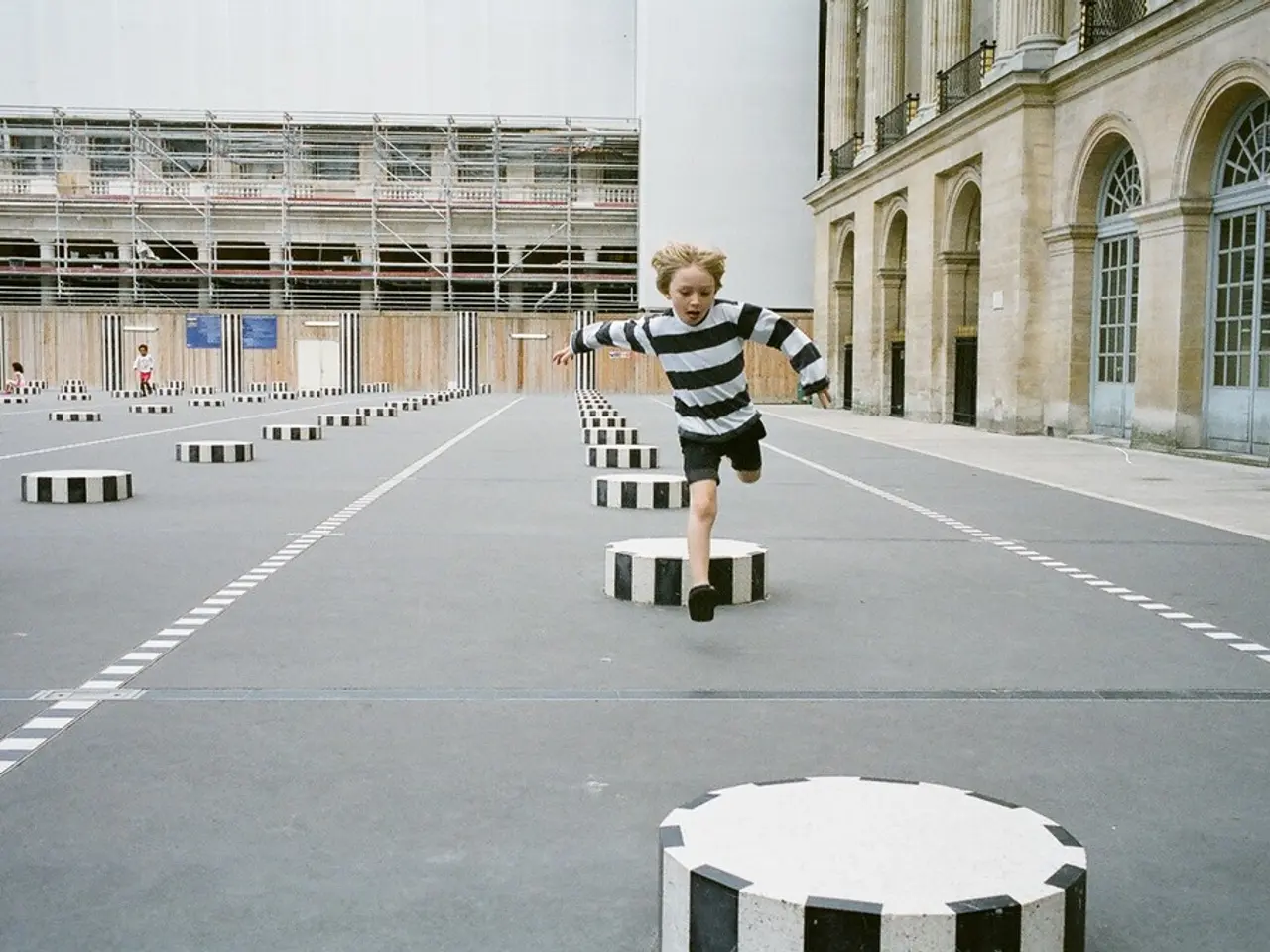Investigating Child-centered Education at Museo Dei Bambini Lecce
Play-based learning, an approach that uses play as the primary context for learning, has been shown to significantly contribute to the holistic development of young children. This method, which aligns with natural child development processes, supports academic, social, emotional, and physical growth in a fun and engaging manner.
One of the key benefits of play-based learning is improved academic performance. By fostering critical thinking, creativity, problem-solving, and a growth mindset, play sets children up for success in formal education [1]. Enhanced social skills are another advantage, as play provides opportunities for children to develop skills like negotiation, sharing, collaboration, and empathy by engaging with peers in role play and other interactive activities [1][2].
Play also plays a crucial role in emotional development and regulation. It offers a safe environment for children to explore, express, and regulate emotions, thereby strengthening emotional intelligence and resilience [3]. Moreover, neuroscience shows that play activates areas like the prefrontal cortex (decision-making, impulse control), cerebellum (motor control, attention, language), and limbic system (emotions, memory), all of which are essential to overall development [3].
Physical skills are another area where play-based learning shines. Physical play enhances motor skills and physical literacy, skills important for later abilities such as reading and writing [3]. Furthermore, play-based learning encourages independence and creativity, promoting autonomy, creativity, and self-expression [2][4].
Play-based learning also nurtures a lifelong love of learning, fostering curiosity and adaptability, and encouraging continual exploration and learning beyond early childhood [1].
Adults can support play-based learning at home by giving children time, space, and permission to follow their ideas. Museums like Museo dei Bambini provide playful exhibits that promote pretend play, helping children understand roles, practice language, and develop empathy. For instance, the Captain's Wheel exhibit encourages pretend play, while the Funny Faces exhibit aids in identifying and managing feelings by allowing children to explore facial cues and emotions.
In conclusion, play-based learning is a powerful tool in supporting childhood development. It builds brain pathways, emotional strength, and social skills without losing children's sense of wonder. It is child-initiated, process-oriented, open-ended, and joyful and engaging. For children, play is not just a distraction from learning, but rather a form of learning itself.
References:
[1] The LEGO Foundation. (n.d.). Play is the Way. Retrieved from https://www.lego.com/en-us/aboutus/responsibility/play-is-the-way
[2] American Academy of Pediatrics. (2018). The Importance of Play in Promoting Healthy Child Development and Maintaining Strong Parent-Child Bonds. Pediatrics, 141(4).
[3] Harvard Center on the Developing Child. (n.d.). The Science of Developing Children. Retrieved from https://developingchild.harvard.edu/
[4] Play and Learning - Nature Human Behaviour. (2020). Play and Learning Flexibility. Nature Human Behaviour, 4(11), 1277–1285.
- Home-and-garden spaces can be designed to facilitate play-based learning, providing children with opportunities to develop their motor skills and physical literacy.
- For better personal-growth and self-development, adults can consider implementing play-based approaches in their education-and-self-development strategies, fostering critical thinking, creativity, and emotional intelligence.
- Museums like the Museo dei Bambini, dedicated to children, can aid in nurturing learning through play, offering interactive exhibits that promote social skills, emotional understanding, and fun.




